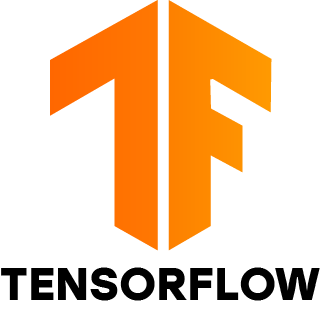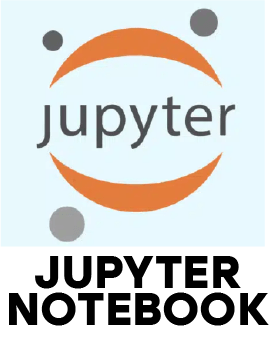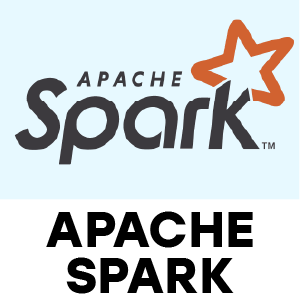ACTE offers a thorough Data Science course for beginners that will teach you how to use Python to create data science applications and tools. In this course, you'll learn the language via a combination of theory and practise, so you'll be prepared to meet the rising demand for data scientists. It also provides students with hands-on experience that will help them better grasp the real-world needs of data analysis. Our academy provides teaching at a reasonable price by well-qualified and certified trainers.
Additional Info
How Does Data Science Work?
To produce a holistic, thorough and refined look at raw data, data science involves a variety of disciplines and expertise areas. To be able to effectively sort through the muddled mass of information and communicate only the ingredients that will drive innovation and efficiency, data scientists have to be skilled in everything from data engineering, math, statistics, and advanced computing. Using algorithms and other techniques, data scientists also rely heavily on artificial intelligence, especially in its subfields of machine learning and deep learning.
Data science generally has a five-stage lifecycle that consists of:
Capture:-
Data acquisition, data entry, signal reception, and data extraction
Maintain:-
The process of storing, cleaning and staging data, and analyzing data.
Process:-
Mine data, classify data, model data, summarize data
Communicate:-
Reporting, analysis and visualization of data, business intelligence, decision-making
Analyze:-
Exploratory and confirmatory, predictive, regression, text mining, and qualitative analyses
Main Components of Data Science:
The main components or processes are as follows:
1. Data Exploration:-
The most important step is the one that takes the most time. The majority of time spent on data exploration is spent on finding patterns and trends. It is rare that data that we obtain is in a correct structured form, which is a main ingredient for data science. The data contains a lot of noise. There is too much data here that isn't required and is therefore noise. In this step, what should we do? We sample and transform our data in this step, in order to identify observations (rows) and features (columns), and to remove the noise by using statistical methods. We also use this step to determine whether there are missing values in the data set as well as to evaluate the relationship between various features (columns). By this, we mean if the features (columns) are dependent on each other or independent of each other. Data is basically prepared for further use after it has been transformed. As a result, this is a very time-consuming process.
2. Modeling:-
We have now prepared and prepared our data. Using Machine Learning algorithms is the second step in this process. Adapting data to a model is what we do here. Data type and business requirements determine the model to use. Choosing the right model for recommending an article to a customer is not the same as the model that is required for predicting sales on a given day. We fit the data into the model once the model has been decided.
3. Testing the Model:-
The next step in the modeling process is important, especially for performance. Testing the model with test data allows it to be checked for accuracy, characteristics, and other changes required to get the desired result. In case accuracy is not achieved, we may go back to step 2 (modelling) and select a different model, then repeat the same step 3 and choose the best model that suits the business needs.
4. Deploying Models:-
By properly testing a model as per business requirements, we get the desired result. Once the model has been finalized and tested, we deploy it into a production environment.
Characteristics of Data Science:
The characteristics are as follows:
1. Business Understanding:-
This is your most important characteristic, because without an understanding of the business you will not be able to make a good model, regardless of your mechanical or statistical abilities. Developing analytics in accordance with the business requirements is the responsibility of a data scientist. As a result, business knowledge is also important or helpful.
2. Intuition:-
A data scientist needs to choose the right model with the right accuracy since all models will not produce the same results although the math involved is proven and foundational. So, a data scientist must understand when a model is ready to be deployed in production. A production model needs the intuition to know when it is stale and must be reengineered to respond to a changing business environment.
3. Curiosity:-
The field of data science is not new. It has also appeared in the past, but the pace at which it is being developed is very fast. A data scientist's curiosity to learn emerging technologies becomes very important since new methods to solve familiar problems are constantly being developed.
The 8 Data Science Skills That Will Get You Hired
Programming Skills:-
The tools of the trade are important no matter what type of company or role you're interviewing for. An R/Python-like statistical programming language, along with a SQL-like database query language, are needed.
Statistics:-
Being a data scientist requires a deep understanding of statistics. Statistics, distributions, maximum likelihood estimates, and so on should be familiar to you. Machine learning will require a very similar level of statistics knowledge, but another crucial part is being able to recognize when specific techniques are (or aren't) applicable. Data-driven companies in particular depend on statistics to make decisions and design / evaluate experiments. Statistics are important at any company, but especially at those driven by data.
Machine Learning:-
There may be situations where you will need to be familiar with machine learning methods if you're at a company with extensive data, or if you work at a company whose products are particularly based on data (e.g. Netflix, Google Maps, Uber). It could be anything from k-nearest neighbors, to random forests, to ensemble methods, and the like. There are a lot of these techniques you can implement with R or Python libraries, so you don't need to be an expert in how they work. Understanding the broad strokes and knowing when to use different techniques is more important.
Multivariable Calculus & Linear Algebra:-
In companies whose products are defined by data, these concepts are of particular importance, and small improvements in algorithm performance or predictive performance can yield big rewards. You may be asked to explain how you came to conclusions from machine learning or statistics during an interview for a data science role. You might be asked a few basic mathematical questions, since multivariable calculus and linear algebra are crucial to many of this stuff. Many out-of-the-box Python or R implementations of these concepts are available, so you might wonder why a data scientist would need to understand them.
Data Wrangling:-
Frequently, the data you analyze will be messy and hard to deal with. Considering this, it is really important to understand how to cope with imperfect data. Missing values, inconsistent string formats (such as New York versus New York versus Ny), and date formats (2017-01-01 versus 01/01/2017, unix time versus timestamp, etc.) are some examples of data imperfections. A skill like this is most important for those joining small companies when they're early employees or those working in data-driven companies where the product is not data-dependent (especially since the latter has typically grown quickly with little attention paid to data quality), but it's essential for anyone.
Data Visualization & Communication:-
A good way to visualize and communicate data is extremely important, especially with young companies that are beginning to make data-driven decisions for the first time. Specifically, it means explaining to non-technical and technical audiences how your findings work and how the techniques work. When it comes to visualization, knowing tools like matplotlib, ggplot, or d3.js can prove immensely helpful. In addition to being popular for data visualisation, Tableau is also used for dashboards. Knowing how to visualize data is important, but so is understanding how to visually encode data and communicate it.
Software Engineering:-
It's important to have a strong background in software engineering if you're interviewing at a smaller company. In addition to handling lots of logging and possibly developing data-driven products, you will be necessary to handle a lot of data.
Data Intuition:-
Employers want to see you are a problem-solver who uses data. The interview process will probably include some questions about some high-level problem, such as a test or a data-driven product the company wants developed. Consider the most important things and discard the less important ones.
Top Frameworks used by Data Scientists:
Here are 10 open source machine learning frameworks available on the market, which are reportedly the most used by data science professionals.
1. TensorFlow:-
A wide range of prominent brands, including Gmail, Uber, Airbnb, Nvidia, and others, utilize Tensorflow, a machine learning library for numerical computing developed at Google. Graphs, SQL tables, and images can be integrated via its formulation to create and experiment with deep learning architectures.
2. Scikit-learn:-
Python programmers use Scikit-learn's open-source machine learning library to build their models. Combined with the frequent updates to improve performance and the fact that it's open-source, it's an industry favorite for machine learning.
3. Keras:-
A Python library to build neural networks, KERAS is open-source. Several popular lower-level libraries are compatible with it, including Tensorflow, Theano & CNTK. Those who have a lot of data or seek the latest in artificial intelligence might find this to be their new best friend: deep learning.
4. Pandas:-
Pandas is an open-source data manipulation and analysis library written in the Python programming language. The program offers data structures as well as operations that enable you to work with numerical tables and time series. In Pandas, incomplete, unlabeled, and messy data can be reshaped, merged, reshaped, and sliced using a variety of tools.
5. Spark MLib:-
Machine learning libraries like Spark MLib are popular. The library is used by almost 6% of data scientists, according to a survey. Java, Scala, Python, and R are all supported by this library. The library can also be used on Hadoop, Apache Mesos, Kubernetes, and other cloud services.
6. PyTorch:-
Tensorflow has been superseded by PyTorch as the most popular deep learning software tool at Facebook. The PyTorch library operates with dynamically updated graphs, unlike TensorFlow. Changing the architecture is possible during this process.
7. Matplotlib:-
A Python plotting library, Matplotlib is also used for numerical extensions to Numpy and is primarily used for data visualization through histograms, scatterplots, and 3D plots. It is the visualization library of choice for all Python data science test cases since it produces histograms, scatterplots, 3D plots, image plots, bar charts, power spectra, and more.
8. Numpy:-
The open-source library Numpy provides programmers with the flexibility to work with arrays and matrices. Fortran is a powerful tool that assists in integrating C and C++ code with Python. Check out the NumPy tutorial and examples for NumPy.
9. Seaborn:-
It is based on the matplotlib package and provides Python data visualization capabilities. Visualizing statistical models is the main focus of this package. Heat maps are visual displays that summarize data while still depicting the overall distributions.
10. Theano:-
Analogous to Numpy, the Theano Python library performs numerical computations. Python 2 uses Theano as its base component for doing mathematical computations. Mathematical expressions involving multi-dimensional arrays can easily be defined, optimized, and evaluated using Theano
Advantages of Data Science:
Data Science has several benefits, including the following:
1. It’s in Demand:-
There is a great deal of demand for data scientists. Those seeking employment have many opportunities at their disposal. In 2026, 11.5 million jobs are expected to be created in the field, the fastest growing job on Linkedin. It is therefore regarded as an extremely employable job sector.
2. Abundance of Positions:-
Data Scientists need a unique skill-set, and very few people possess it. Due to this, Data Science differs from other IT sectors in that it is less saturated. Consequently, Data Science offers a lot of opportunities and is a vast field of study. Despite high demand for Data Scientists, the number of Data Scientists available is low.
3. A Highly Paid Career:-
There are few professions that pay as much as data science. A Data Scientist makes on average $116,100 a year, according to Glassdoor. This makes Data Science an appealing career choice.
4. Data Science is Versatile:-
The data science field has many applications. Several industries use it, including health-care, banking, consultancy services, and e-commerce. Data Science has many applications. Thus, you will be able to work in different fields.
5. Data Science Makes Data Better:-
Performing data processing and analysis requires the expertise of Data Scientists. Additionally, they improve the quality of data as well as analyze it. Therefore, Data Science entails enriching data to serve the needs of the company.
6. Data scientists are in high demand:-
Companies that hire Data Scientists are able to make more informed business decisions. They are employed by companies in order to provide their clients with better results through their expertise. This position in the company gives Data Scientists a great deal of responsibility.
7. No more monotonous tasks:-
Various industries have benefited from data science by automating redundant tasks. In order to perform repetitive tasks, companies train machines by using historical data. As a result, humans no longer have to perform the arduous jobs previously performed by humans.
8. Data Science Makes Products Smarter:-
Using Machine Learning, Data Science has enabled industries to create better-tailored products to better serve customers. Websites that use Recommendation Systems to provide personalized insights to users are popular among e-commerce websites. Data-driven decisions can now be taken by computers based on human behavior.
9. The power of data science is life-saving:-
Because of Data Science, the healthcare industry has greatly improved. Detecting early-stage tumors has become easier with the advent of machine learning. Other sectors of the health care industry are also using data science to assist their clients.
10. Data Science Can Make You A Better Person:-
In addition to helping you build a successful career, Data Science will also help you grow personally. A problem-solving attitude will be developed in you. The best of both worlds is possible in Data Science roles since they bridge IT and Management.
Data Science Training certifies you with ‘in demand’ Big Data Technologies.
Data Science Training is the best way to prepare for the growing demand for skills and technologies relating to Big Data. Professionals are equipped with data management technologies such as Hadoop, R, Flume, Sqoop, Machine learning, Mahout, and more. This adds value to their careers and makes them more competitive.
Having mastered data sciences and Big Data, you will be able to get high-paying jobs in the Data Science industry.
You can also get the top-paying Big Data job title after you complete this training.
There are numerous job titles offering handsome salaries in IT that are related to Big Data and Data Science. Today, Big Data and Data Science have spread across all leading industries and not just in the IT field. So, it becomes evident that a certified Data Science Professional has no limit to what they can accomplish.








































